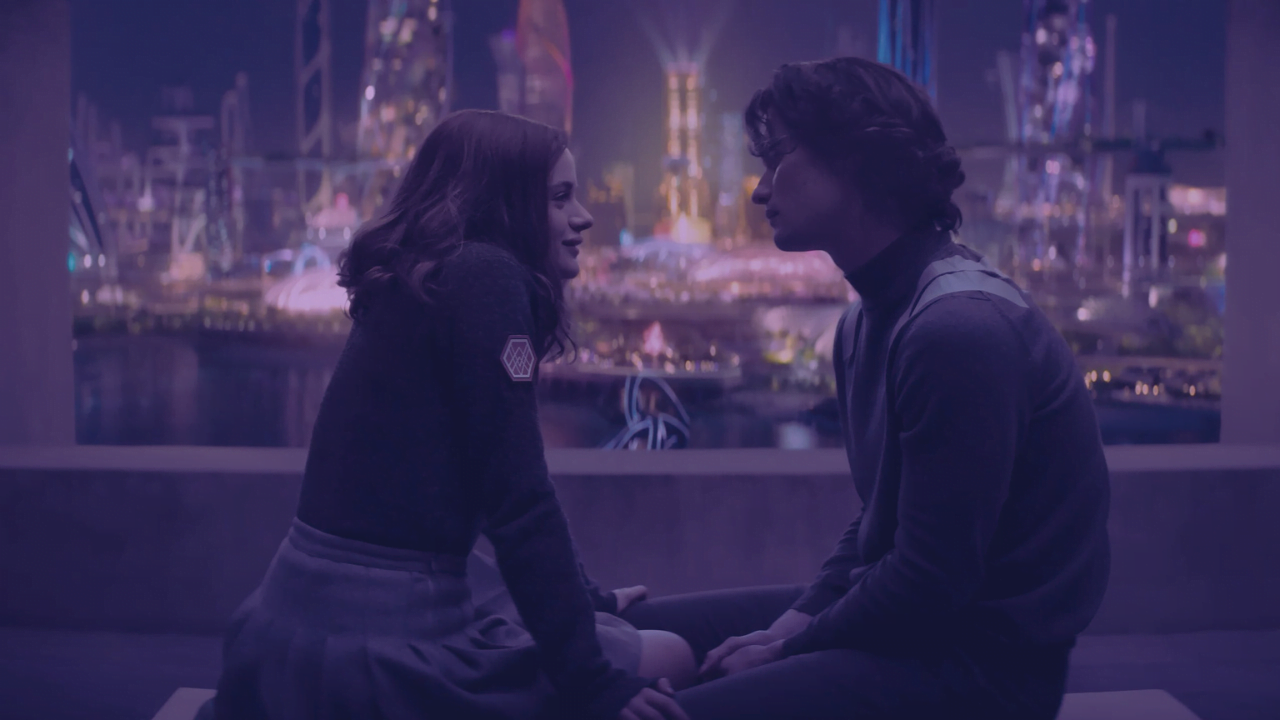Introduction:
In this huge realm of Dystopian Cinemas and Tv Series, certain themes appears in the frontline way fast than others: societal collapse, oppressive governments, and the struggle for individuality. In Andrew Niccol’s iconic sci-fi movie Gattaca, we encounter “in-valids,” citizens born without genetic enhancements who face discrimination. Similarly, in McG’s Uglies, adapted from Scott Westerfeld’s best-selling YA novel, the concept of discrimination takes a unique twist—those who haven’t undergone cosmetic transformation are deemed “uglies.”
But what exactly does this mean? How do beauty standards get entangled with dystopian narratives, and why is humanity so drawn to this strange obsession with perfection? In this article, we’ll explore the messy, flawed world of Uglies and the bigger questions it poses.
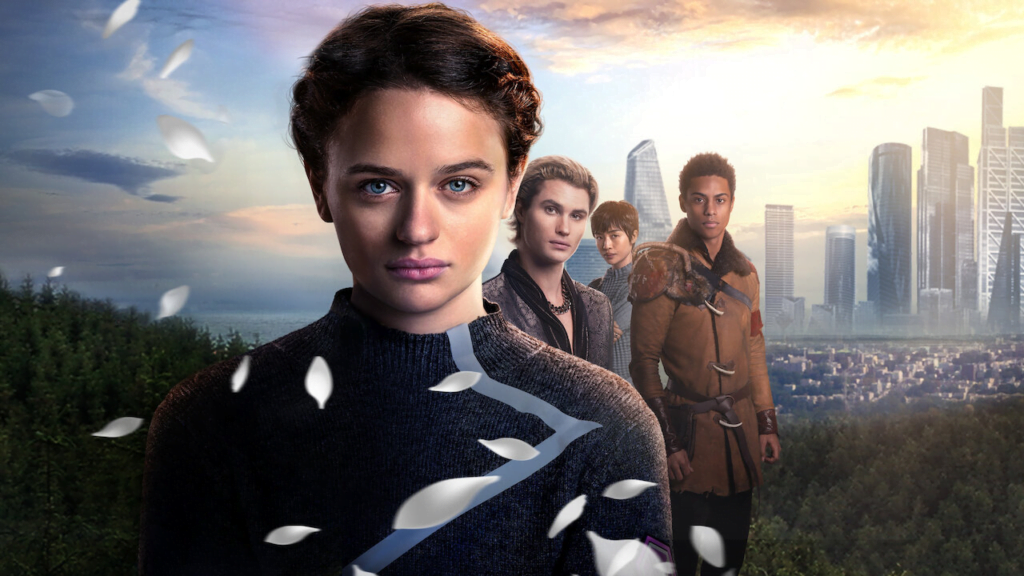
The Dystopian Premise of Uglies
In Uglies, we’re thrown into a future where humanity has suffered from the devastating consequences of climate change, driven by reliance on fossil fuels. The earth, once lush and vibrant, has been destroyed, leaving behind chaos and destruction.
But this film isn’t just about environmental collapse. It’s about something deeper—human nature, vanity, and societal expectations. As protagonist Tally explains, scientists may have solved the problem of energy with a revolutionary new power source, but they couldn’t fix the deeper issues of human flaws and the need for beauty.
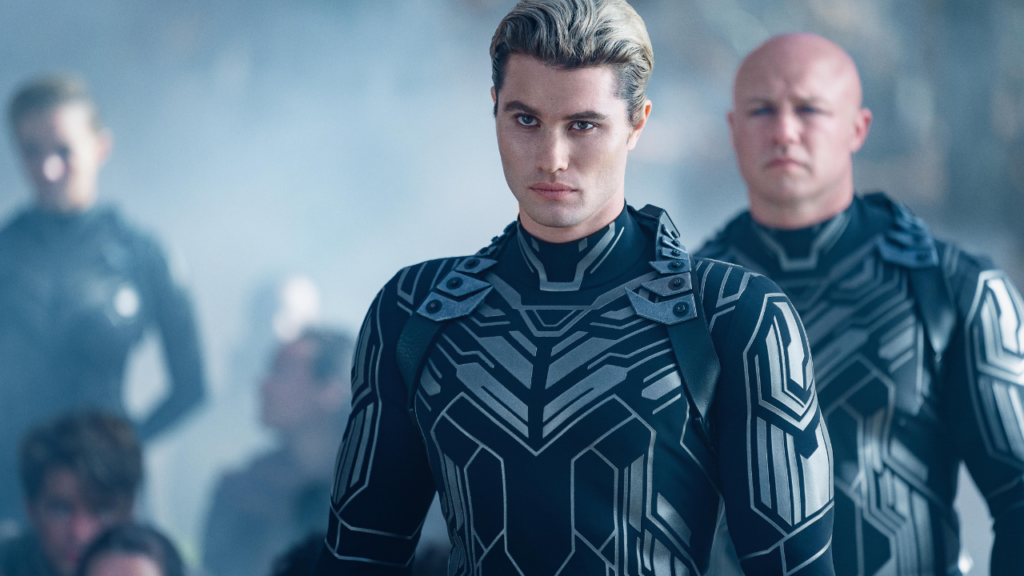
The “Transformation”: When Beauty Becomes Compulsory
At the heart of Uglies lies “the transformation.” On their 16th birthday, every citizen undergoes a surgical procedure that makes them their most “physically attractive” self. The logic behind this? To create a utopia where beauty means conformity, and in this world, conformity means peace.
Once the transformation is complete, citizens are taken away to neon-lit cities, leaving behind their “ugly” gray lives to revel in their newfound physical perfection. But the question arises: Is this so-called utopia really perfect, or is it hiding darker truths?
Beauty, Conformity, and Identity
The concept of beauty in Uglies is not just skin deep; it’s a reflection of the film’s critique of modern beauty standards. Much like how social media filters and cosmetic enhancements have created a culture where everyone strives for a singular idea of perfection, Uglies forces us to confront the dangers of a world where individuality is sacrificed for societal standards of beauty.
Isn’t beauty supposed to be subjective, defined by the eye of the beholder? Not in this world. Here, beauty is formulaic, cold, and controlled by the government.
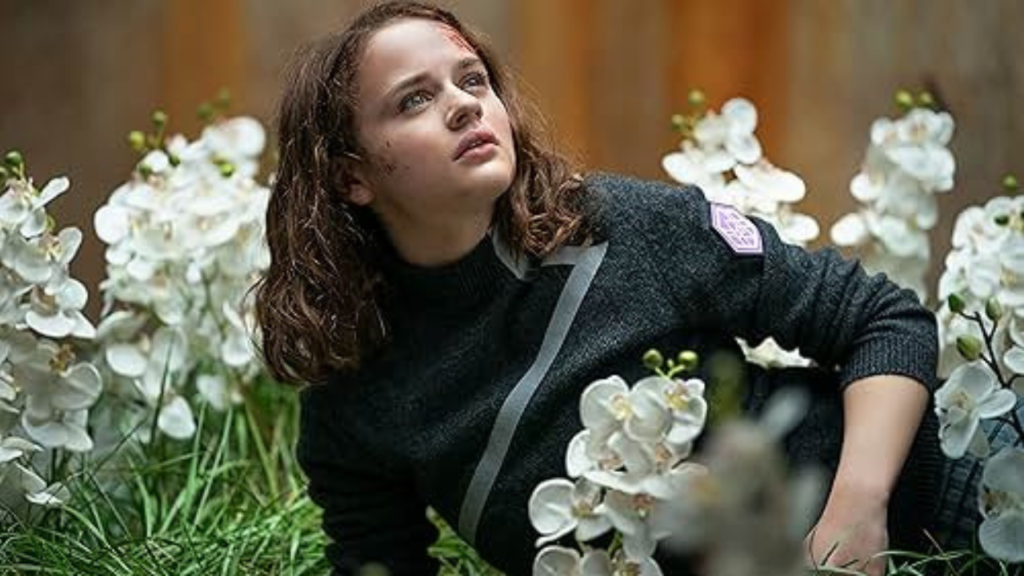
Tally’s Journey: From Conformity to Rebellion
Tally, the protagonist played by Joey King, is excited about her transformation. Like many teenagers, she’s eager to leave behind her old life and embrace the glittering promise of perfection. But when she encounters a group of rebels known as “The Smoke,” she begins to question the very system she once idolized.
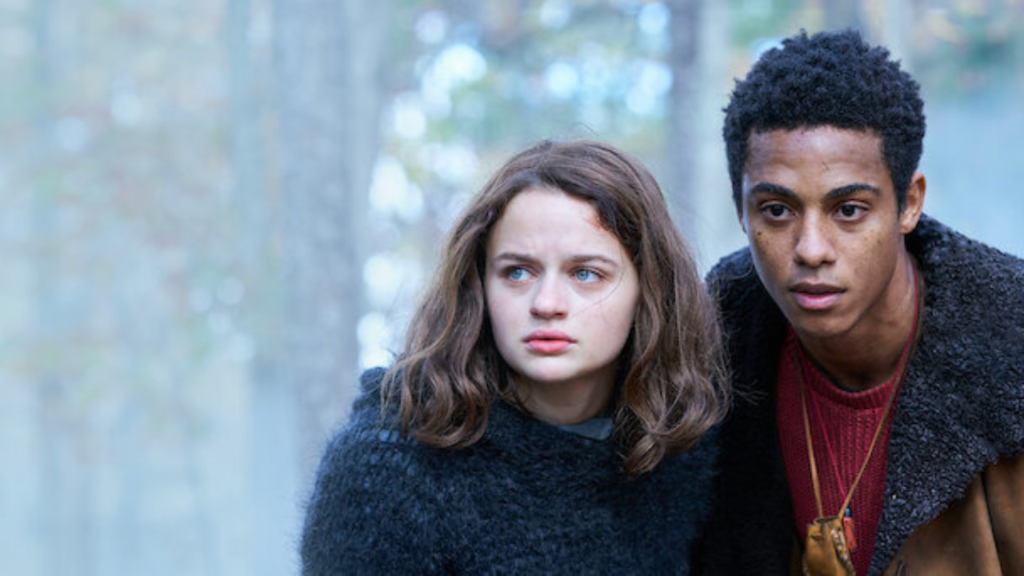
The Smoke: Rebels of Individuality
“The Smoke” lives far outside the city, renouncing the transformation and choosing to age naturally. They grow their own food, read books, and live in harmony with nature—a stark contrast to the technologically advanced yet emotionally sterile cities. They are reminiscent of the Lost Boys in Peter Pan, rebellious and free, choosing authenticity over conformity.
Infiltrating The Smoke, Tally is initially on a mission to destroy them. She’s sent by Dr. Cable, the cold and ruthless governor played by Laverne Cox, to crush this rebellion. But as Tally spends more time with these free spirits, she begins to see the flaws in the system she once trusted.
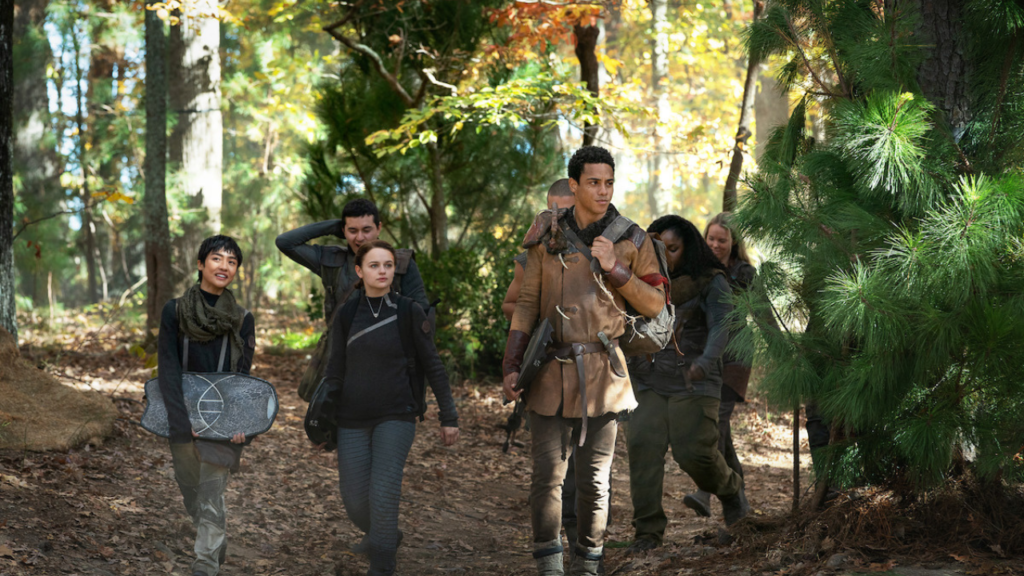
Dr. Cable: The Villain of Control
Dr. Cable represents the oppressive force that governs this dystopian society. With her cold stature and emotionless nature, she embodies the very essence of control. In many ways, she mirrors classic dystopian villains like Big Brother in 1984—constantly watching, manipulating, and enforcing rigid societal standards.
Interestingly, Dr. Cable is often seen as a holographic projection—a cold, untouchable figure who rules with a virtual fist. Her lack of humanity reflects the very society she upholds—a place where emotions, individuality, and imperfections have no place.
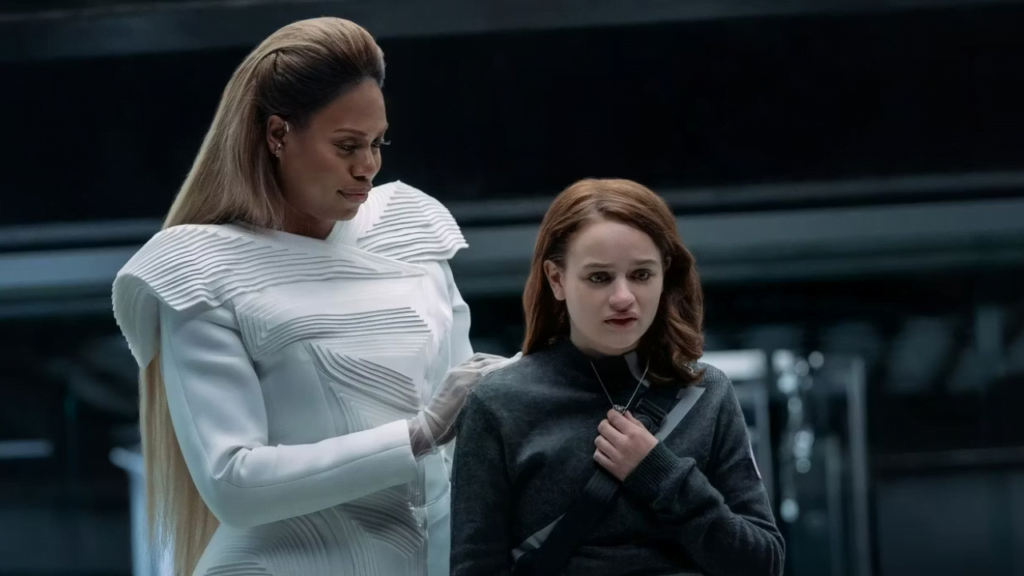
The World of Uglies: Technology Meets Nature
One of the film’s most interesting aspects is the blending of futuristic technology with natural elements. While the city is a marvel of holograms, neon lights, and technological advancements, The Smoke represents a return to nature. The contrast between the two locks the film’s exploration of artificial beauty versus natural existence.
Futuristic Tech and Fascinating Gadgets
From toothbrush pills to hoverboards, Uglies introduces a variety of futuristic inventions that are both intriguing and, in some ways, believable. These small details help ground the film in a reality that seems just out of reach but mysteriously possible.
Themes of Identity and Autonomy
One of the core themes of Uglies is the battle for autonomy. Tally’s journey is not just a physical one; it’s a journey of self-discovery. She moves from blindly following the rules to questioning the very essence of who she is and what she wants.
In many ways, Tally’s struggle mirrors the real-world tension between societal expectations and personal identity. How often do we sacrifice our true selves to fit into society’s mold? Tally’s rebellion is a metaphor for the universal desire to break free from these constraints and live authentically.
The Failure of Uglies’ Worldbuilding
Despite its fascinating premise, Uglies falls short in delivering some powerful punch it aims for. The narrative, while full of potential, is weighed down by weak writing and poor pacing. The film’s cut-rate look and feel lowering the impact of its otherwise compelling ideas. While it touches on important concepts, the film struggles to make us care deeply about its characters, especially Tally, whose transformation into a hero feels undeserved.
A Missed Opportunity for Emotional Depth
Joey King’s portrayal of Tally brings a degree of roughness to the role, but the dialogue often lets her down. Lines like “I know who I am now” feel too clichéd, robbing her character of depth. On the other hand, Laverne Cox’s Dr. Cable comes across as eerily lifeless—more a symbol of the system than a fully developed character. The lack of emotional connection leaves viewers detached from the stakes of the story.
Conclusion: Beauty Isn’t Everything
Uglies presents a world where beauty is everything—until you realize it’s nothing. Through Tally’s journey, the film tries to convey a message about the dangers of conformity and the importance of individuality. While it stumbles in execution, its underlying themes resonate in a world increasingly obsessed with outward appearances.
In the end, Tally’s story is a reminder that true beauty lies not in perfection but in our flaws, our individuality, and our humanity.
FAQs:
1. What is the main theme of Uglies?
The main theme of Uglies revolves around the dangers of enforced beauty standards, conformity, and the loss of individuality in a dystopian society.
2. How does Uglies critique modern beauty standards?
The film draws parallels to the modern obsession with cosmetic enhancements and social media filters, warning of a future where individuality is sacrificed for a narrow, enforced standard of beauty.
3. Who is the villain in Uglies?
Dr. Cable, played by Laverne Cox, is the chief villain. She represents the controlling government that enforces the transformation process to ensure conformity.
4. What is “The Smoke” in Uglies?
“The Smoke” is a group of rebels who reject the transformation and live off the grid, embracing natural aging and individuality.
5. How does Uglies compare to other dystopian films like Gattaca?
Both Uglies and Gattaca explore themes of discrimination and conformity, but while Gattaca focuses on genetic perfection, Uglies critiques cosmetic and societal standards of beauty.
Also Read:
| Netflix Upcoming & New Release | Netflix’s Latest Horror Drop: An Unsettling Peek Inside “It’s What’s Inside” |
| My Honest Reviews | “Rebel Ridge” movie Review: A Gritty, Action-Packed Thriller |
| News on Netflix | Ryan Murphy Surprises Netflix Audiences with Third Season of “Monsters” Starring Charlie Hunnam as Ed Gein |

